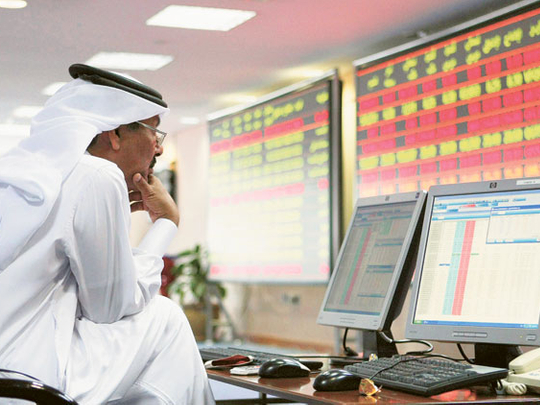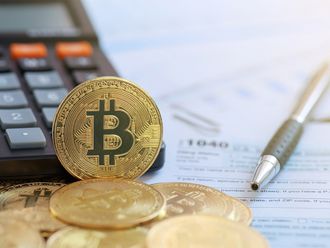
Of all bourses in Gulf Cooperation Council (GCC) countries, only that of Qatar registered a positive growth rate in 2011. To state the fact, the Qatari index grew by a mere 1.1 per cent although this figure seems outstanding compared to the performance of other regional markets, especially Bahrain.
Bahrain's bourse suffered the worst decline, sinking 20 per cent. It is easy to link the plunge to the unrest in the kingdom.
Muscat's Security Market, too, dropped by almost 16 per cent partly reflecting adverse consequences of unrest emerging at the start of 2011.
The protests prompted the Omani authorities to augment spending from $21 billion (Dh77.12 billion) to nearly $24 billion by end of fiscal year 2011. The extra appropriations were meant to address grievances by creating jobs for locals and increasing pensions for the retired.
The benchmark of Kuwait's bourse declined by nearly 16 per cent.
It may be recalled that financial authorities in Kuwait took an extraordinary decision, namely suspending trading in stocks of 50 listed firms.
The punishment came in response to the failure of the firms to release financial results within in due time. Clearly, the development strengthens the reputation of Kuwait Stock Market as an entity committed to laying down the law to violators.
Abu Dhabi's bourse fell by 12 per cent, while Dubai dropped by nearly 17 per cent.
Saudi shares
Saudi Arabia's Tadawul All-Share Index (Tasi) declined by 3 per cent. Still worse, total market capitalisation of listed firms decreased by just above 4 per cent to $339 billion.
Conversely, Tasi reported positive results, as evidenced by sharp growth of 45 per cent in the value of traded shares to $293 billion.
Also, the total number of transactions executed during the year jumped by 31 per cent to about 25.6 million trades.
Continuing adverse performance elsewhere in regional capital markets of the broader Middle East, the volume of funds raised via issuance of initial public offers dropped by 69 per cent in 2011.
A report by Ernst and Young put the amount raised through initial public offerings (IPOs) for the whole of 2011 at just $844 million.
In recognition of its fin-ancial strength, the Saudi market accounted for $461 million, or 55 per cent of funds raised through IPOs in the region in 2011.
These unwelcome developments occurred notwithstanding firm oil prices and their attendant effects on government spending in all GCC countries.
For instance, the final expenditures for fiscal year 2011 in Saudi Arabia stood at $214 billion, considerably higher than the budgeted figure of $155 billion.
Europe's troubles
Certainly, market sentiments across the GCC largely reflected the dull performance of key European bourses, especially those of France, Germany and Britain.
Other negative news emanating from the EU includes the debt debacle faced by numerous countries notably Greece as well as upheavals surrounding the value of the euro.
Needless to say, the 27-member EU represents the largest trading bloc with regards to the GCC.
In the age of globalisation, international markets share both positive and negative news, with GCC bourses being no exception.
The writer is a Member of Parliament in Bahrain.












